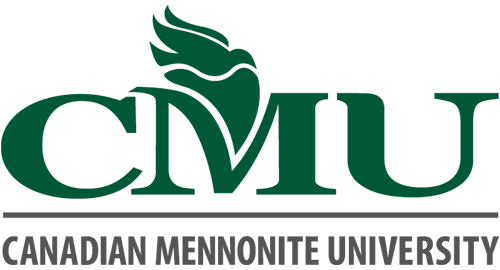Canada offers world-class education, with diverse institutions and a wide range of programs, known for its high academic standards, research opportunities, and inclusive environment. The country is home to top universities and colleges, providing cutting-edge facilities and expert faculty, while emphasizing innovation and student success.
International students benefit from Canada's welcoming culture, post-graduation work options, safe environment, beautiful landscapes, and multicultural society, making it an ideal destination for global learners.
- The number of international students increased by 29% in 2023, reaching 1,040,985.
- International Study Permit Increased by 34% in 2023.
- International students cross 1-million mark in 2023, Indians highest at 37%, followed byChina, Philippines, Nigeria.
- Canada’s target for 2024 is 3.6 LacStudy Permits. 35% lesser
- 60% Visa Approval Rate
- Canadian Study Permit Applications Processed for Indians Down More than 40% Since July,2023.
- Canada's housing affordability crisis caused a decline in applications from India, dropping from 190,419 (July-November 2022) to 120,096 (July-November 2023).
Why Study in the Canada?
Studying in Canada offers access to high-quality education, with world-renowned universities and a diverse, inclusive environment.
- Tech industry boasts 488,000 IT professionals
- Path to Immigration
- Multicultural Society
- Strong Economy and Job Opportunities
- Beautiful Landscapes and Outdoor Activities
The Canada has over 223+ universities & colleges nationwide.
Average living expense in the Canada is CAD 20,635 (approx) per year
Average Placement for STEM: CAD 50K - 70K (approx) & Non-STEM: CAD 40k - 60k (approx) / annum
Average Fees for CAD 20K-36,100 (approx) per year Community Colleges CAD 7k-22k (approx)
PSW 2 year course = 3 year PSW ,1 year course = 1 year , < 8 months=NO PSW
Part time work is 20 hrs/week hourly Wage-CAD 18-25
Top Universities
University of Toronto

Global Rank
34
Acceptance Rate
43%
Popular For
Computer Science
Exams Accepted
IELTS , TOEFL , +4
Boreal College

Global Rank
Not ranked
Acceptance Rate
60-70%
Popular For
Health and Community Services
Exams Accepted
IELTS , TOEFL , +4
Canadian Mennonite University

Global Rank
Not ranked
Acceptance Rate
60-70%
Popular For
Religious Studies
Exams Accepted
IELTS , TOEFL , +4
McGill University

Global Rank
31st
Acceptance Rate
46%
Popular For
Biomedical Sciences
Exams Accepted
IELTS , TOEFL , +4
Memorial University of Newfoundland

Global Rank
Not Ranked
Acceptance Rate
60-70%
Popular For
Marine Biology
Exams Accepted
IELTS , TOEFL , +4
Northern College

Global Rank
Not Ranked
Acceptance Rate
70-80%
Popular For
Health Sciences
Exams Accepted
IELTS , TOEFL , +4
McMaster University

Global Rank
140
Acceptance Rate
58%
Popular For
Nursing and Medicine
Exams Accepted
IELTS , TOEFL , +4
Simon Fraser University

Global Rank
325
Acceptance Rate
50-60%
Popular For
Computing Science
Exams Accepted
IELTS , TOEFL , +4
Cambrian College

Global Rank
Not Ranked
Acceptance Rate
25-30%
Popular For
IT & Engineering
Exams Accepted
IELTS , TOEFL , +4
University of Waterloo

Global Rank
Not Ranked
Acceptance Rate
40-50%
Popular For
Fine Arts
Exams Accepted
IELTS , TOEFL , +4
Popular Courses
Computer science
Business
Engineering
Health sciences
Physiotherapy
Information technology
Animation and gaming

Document Checklist
The Document Checklist for studying in the abroad includes all the necessary paperwork required for your university application, visa process, and travel. Ensuring you have all the required documents organized and ready is crucial for a smooth admission and visa process.
Passport
Birth Certificate
Mark sheets
IELTS
Transcripts
Medical Certificate
LOR-2 OR 3
SDS/ NON-SDS visa filing
Funds/ GIC
SOP
LOA from DLI ( Designated Learning Institution)
Visa Process
What is SDS ?
Student Direct Stream (SDS) is a streamlined visa category specifically designed for international students applying to designated Canadian institutions. It offers faster processing times and certain advantages compared to the regular student visa process.
List of countries
Antigua and Barbuda, Brazil, China, Colombia, Costa Rica, India, Morocco, Pakistan, Peru, Philippines, Senegal, Saint Vincent and the Grenadines, Trinidad and Tobago, Vietnam
GIC (Guaranteed Investment Certificate)
Guaranteed Investment Certificate is a mandatory financial requirement for students applying for a Canadian student visa under the Student Direct Stream (SDS)
- GIC amount - CAD 20,635 (INR 12,71,619 approx)
- Earlier - 10,000 CAD
- Banks CIBC Bank, Scotia Bank or ICICI
- Money will be released in fixed interval with interest payment VISA PROCESS
NON-SDS (Non-Student Direct Stream)
A student who doesn't meet the eligibility criteria for the Student Direct Stream (SDS), goes for Non-SDS visa process.
- IELTS - less than 6 bands (no band less than 5.5)
- TAT-2-3 Months
- Application fee - 235 CAD
- GIC-No
- CAD 20,635 funds in Bank account statement, consistent throughout the 4-month period
FAQs

1. What types of courses are available in Canada?
You can find almost all the courses to study in Canada. The list of Domains that offer the Best Courses to Study in Canada is Business & Finance, Computer Science & Information, Technology, Engineering, Health & Medicine, and Media & Journalism.
2. What is the procedure to study in Canada?
First, you need to obtain admission to a Canadian Designated Learning Institution (DLI). Once you receive a letter of acceptance from a DLI, you can apply for a study permit. Applications may be made online or by mail. A study permit is generally issued based on the duration of the student’s studies.
3. What is the procedure to extend the student visa?
You must apply to renew your study permit at least before 30 days of its expiry. Check the expiry date mentioned in the top right corner of your study permit. Before you apply for an extension, you must make sure that your passport is still valid
4. How to get admission in a US university?
There are a few steps you need to follow to get admission to a Canada university. Start by researching the requirements of the chosen university. Assemble all the documents such as transcripts, standardized test scores, LOR, SOP, etc. You can find all the information regarding the documents required on the university websites. Then fill out the application form and submit it along with all the documents. Don't forget to pay the registration fee. If your application is eligible, you will be issued the acceptance letter
5. What are some of the requirements to study Masters in Canada?
For the master's, the requirements are very course specific for the Canada. Apart from a bachelor’s degree, some of the degrees also ask for significant work experience in a specific University as far as the Master's degree is concerned. Other than these you may also be asked to appear for GRE OR GMAT. For evaluating your English language skills, you may be asked to appear for one of the standardized English tests such as IELTS, TOEFL, PTE, etc.
















